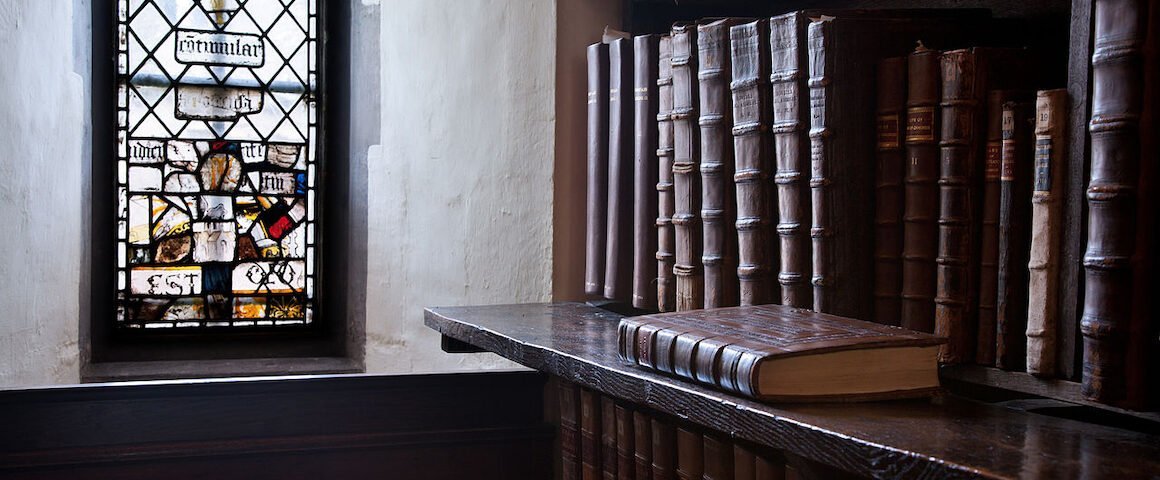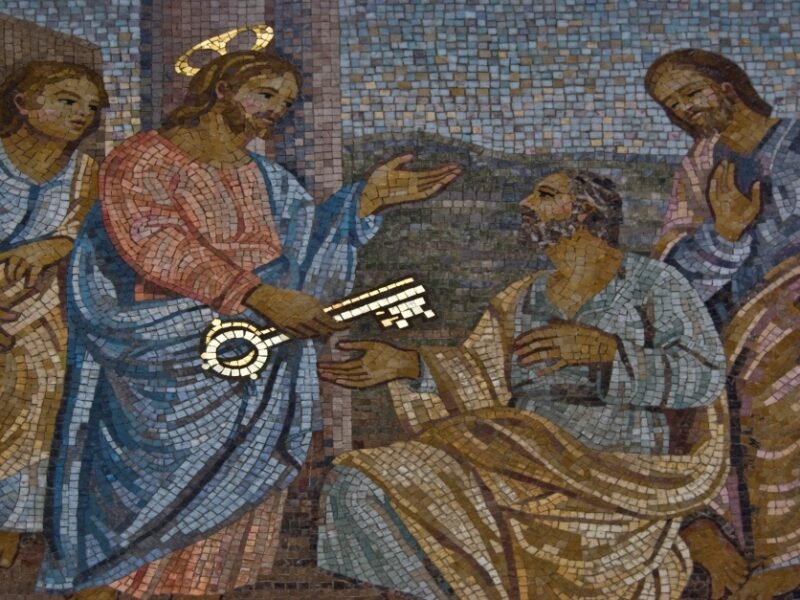Original sin is defined by Article IX as “the fault and corruption of the nature of every man, that naturally is engendered of the offspring of Adam.” One key element of this definition is that Adam brought sin into the world:
Adam, we find from the second chapter of Genesis, received from God a nature free from sin, and so not subject to shame. But he defiled it with sin, and it became at once subject to shame, and then subject to death. Accordingly, when he handed down that nature to his posterity, he could not hand it down pure as he had received it; he of necessity gave it to them as he had himself made it, stained with sin, liable to shame, having the seeds of mortality, and subject to condemnation.
Another key element is that Adam passed on his now sinful nature to the rest of humanity:
The language of St. Paul already quoted, “in Adam all die” (1 Cor. xv. 22), “By one man sin entered into the world, and death by sin; and so death passed upon all men; for that all have sinned” (Rom. v. 12), shows that the woe denounced upon Adam, as the effect of his own sin, passed from him to his posterity, as the effect of that sinfulness which they inherited from him.
Our inheritance of original sin from Adam is also affirmed in the Homilies, as Browne observes. “A Sermon of the Misery of All Mankind” begins as follows:
The Holy Ghost, in writing the Holy Scripture, is in nothing more diligent than to pull down man’s vainglory and pride, which of all vices is most universally grafted in mankind, even from the first infection of our first father Adam.[1]
Likewise, from “An Homily or Sermon Concerning the Nativity and Birth of Our Saviour Jesus Christ”:
This so great and miserable a plague [of sin], if it had only rested on Adam who first offended, it had been much the easier and might the better have been borne. But it fell not only on him, but also on his posterity and children for ever, so that the whole brood of Adam’s flesh should sustain the selfsame fall and punishment which their forefather by his offence most justly had deserved.[2]
Embedded within this account of original sin is the premise that Adam was a historical person, which has been almost universally taken for granted throughout most of Christian history. It is only since the rise of evolutionary theory in the nineteenth century, and in particular the publication of Darwin’s On the Origin of Species in 1859 (Browne’s Exposition was completed six years prior), that the historical Adam—and by extension original sin—has come under scrutiny. Whereas the Pelagians held that Adam’s sin affected no one but himself, evolutionists have claimed that Adam never existed at all, or if he did exist, he was a product of evolution and certainly not the first human being. If this were true, it would overturn the traditional doctrine that humanity’s sinful nature is inherited from Adam, thereby raising questions as to when and how sin entered the world.
Broadly speaking, there have been three responses to the evolutionist challenge: 1) deny evolutionary theory and affirm the historical Adam;[3] 2) accept evolutionary theory and revise the traditional accounts of Adam and original sin, or discard them altogether;[4] 3) affirm the historical Adam while also accepting (or at least allowing room for) evolutionary theory.[5] This is not the place to embark on a comprehensive examination of the merits of evolutionary theory or how, supposing such a theory is true, it impinges on traditional Christian doctrine. Suffice to say it should be apparent from the excerpts quoted above that dispensing with the historical Adam is not an option for confessional Anglicans.
Readers can draw their own conclusions as to whether it is more feasible to reconcile the historical Adam with evolutionary theory somehow, or to deny evolutionary theory altogether. The former approach is often treated as the only sensible one by those who are at pains to uphold the reasonableness of Christianity, but history shows us that Christians should be wary of making traditional doctrine conform to something as ephemeral as scientific consensus.[6] Geocentrism, after all, was once scientific consensus. Far better is it to guard carefully those teachings handed down to us from ages past and be slow to cast them aside, that we not be tossed to and fro, carried about with every wind of scientific doctrine.
Notes
- Gerald Bray, ed., The Books of Homilies: A Critical Edition (Cambridge, UK: James Clarke & Co., 2015), 14. ↑
- Bray, Homilies, 392. ↑
- See J. P. Moreland, Stephen C. Meyer, Christopher Shaw, Ann K. Gauger, and Wayne Grudem, eds., Theistic Evolution: A Scientific, Philosophical, and Theological Critique (Wheaton, IL: Crossway, 2017). ↑
- See Patricia A. Williams, Doing without Adam and Eve: Sociobiology and Original Sin (Minneapolis: Fortress Press, 2001); Peter Enns, The Evolution of Adam: What the Bible Does and Doesn’t Say about Human Origins (Grand Rapids: Brazos Press, 2011); Stanley P. Rosenberg, Michael Burdett, Michael Lloyd, and Benno van den Toren, eds., Finding Ourselves after Darwin: Conversations on the Image of God, Original Sin, and the Problem of Evil (Grand Rapids: Baker Academic, 2018); Daniel W. Houck, Aquinas, Original Sin, and the Challenge of Evolution (New York: Cambridge University Press, 2020); and William Lane Craig, In Quest of the Historical Adam: A Biblical and Scientific Exploration (Grand Rapids: Eerdmans, 2021). For a critical response to Craig, see Thomas A. Howe, A Critique of William Lane Craig’s In Quest of the Historical Adam (Eugene, OR: Wipf and Stock, 2022). ↑
- See Francis J. Hall, Evolution and the Fall (New York: Longmans, Green, and Co., 1910); C. John Collins, Did Adam and Eve Really Exist? Who They Were and Why You Should Care (Wheaton, IL: Crossway, 2011); Hans Madueme and Michael Reeves, eds., Adam, the Fall, and Original Sin: Theological, Biblical, and Scientific Perspectives (Grand Rapids: Baker Academic, 2014); S. Joshua Swamidass, The Genealogical Adam and Eve: The Surprising Science of Universal Ancestry (Downers Grove, IL: IVP Academic, 2019); Thomas H. McCall, Against God and Nature: The Doctrine of Sin (Wheaton, IL: Crossway, 2019), 383‒404; Jon Garvey, The Generations of Heaven and Earth: Adam, the Ancient World, and Biblical Theology (Eugene, OR: Cascade Books, 2020); and Francis J. Hall, Anglican Dogmatics: Francis J. Hall’s Dogmatic Theology, ed. John A. Porter, vol. 1, Bk. V, Creation & Man (Nashotah, WI: Nashotah House Press, 2021), 537‒38, 549‒50, 556‒58, 586‒88, 595‒96. ↑
- For recent critiques of evolutionary theory, see Stephen C. Meyer, Darwin’s Doubt: The Explosive Origin of Animal Life and the Case for Intelligent Design (New York: HarperOne, 2014); Neil Thomas, Taking Leave of Darwin: A Longtime Agnostic Discovers the Case for Design (Seattle: Discovery Institute Press, 2021); and Steven Laufmann and Howard Glicksman, Your Designed Body (Seattle: Discovery Institute Press, 2022). ↑







'The Binding of Adam [Commentary on Browne: Article IX (1)]' has no comments
Be the first to comment this post!